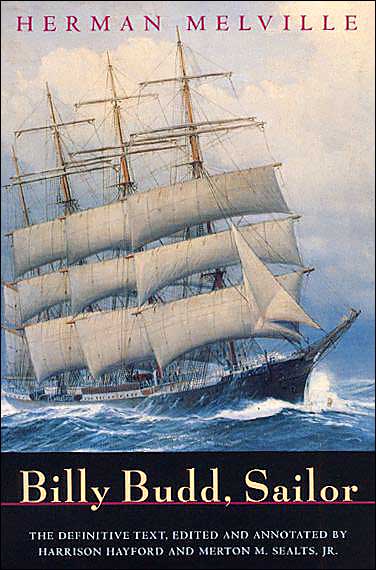Well, his more famous novel, Moby-Dick, went early in the draft. But Bartleby and the Scriveners are very pleased that Melville's less-famous but equally accomplished Billy Budd has fallen this far, and will select in
Pre-20th Century (just barely)
Billy Budd, Foretopman by Herman Melville.

Sometimes (as in this cover), this book is called "Billy Budd, Sailor"--and it's little wonder that there is confusion as to this book's title, since there is just as much confusion as to its provenance, and even its authoritative text. Billy Budd was never completed in Melville's lifetime--or at least not sent away for publication, though in a narrative sense it is at least relatively coherent. Different editions produce different parts of the text differently, and most correct for the fact that Melville is inconsistent throughout--one example is that he at first refers to Billy Budd's ship as the "Indomitable," but later settles on the name "Bellipotent" as more in keeping with the thematics of the story. These are but minor details, however.
As for the story itself, it is both shockingly modern in its concerns and ancient in its scope. The stakes are biblical--Billy, the "handsome sailor" is at once the object of erotic desire on the part of his shipmates, and also the "cynosure" that guides them toward purity and gentleness of spirit, while his nemesis Claggart is an envious and vengeful agent of chaos, suffering from a "defect according to nature" that leads him to simultaneously loathe and desire Billy. Billy is the innocent sacrificial lamb--Claggart is the serpent. The imagery is clear, yet in the end it is Billy who accidentally kills Claggart with a single blow and is forced to meet his death at the yardarm, blessing his captor and confessor Captain Vere with his final breath.
Billy Budd is one of those stories that complicates itself upon rereading--I've taught it about 8 times and each time I find some stunning facet or fold that sends me back leafing through the text again. The most painful irony to me is that this--perhaps Melville's best work--was left undone, literally sealed away in a coffee-can, as he languished in depression and obscurity at the end of his life. If only he had realized how far he had surpassed the less subtle bombast of
Moby-Dick... or what a monumental achievement his literary career would turn out to be. But like many writers, he died believing himself to be a failure, which while fitting still strikes me as very tragic.